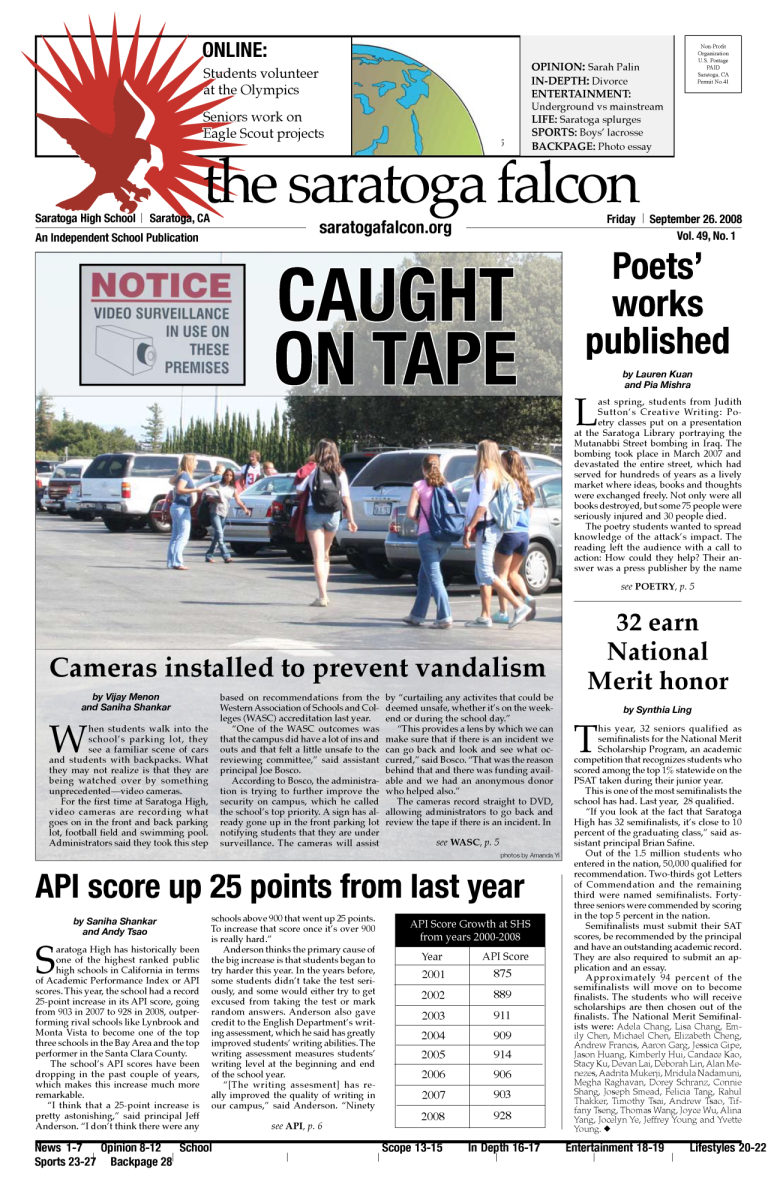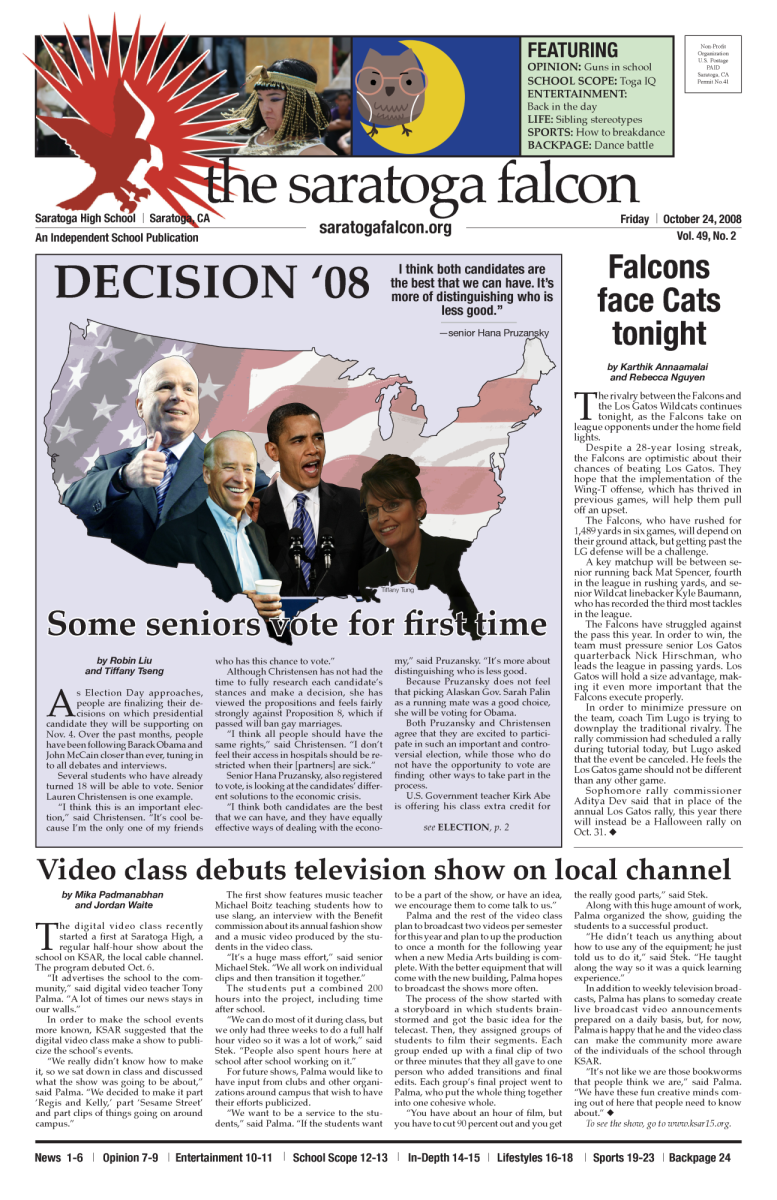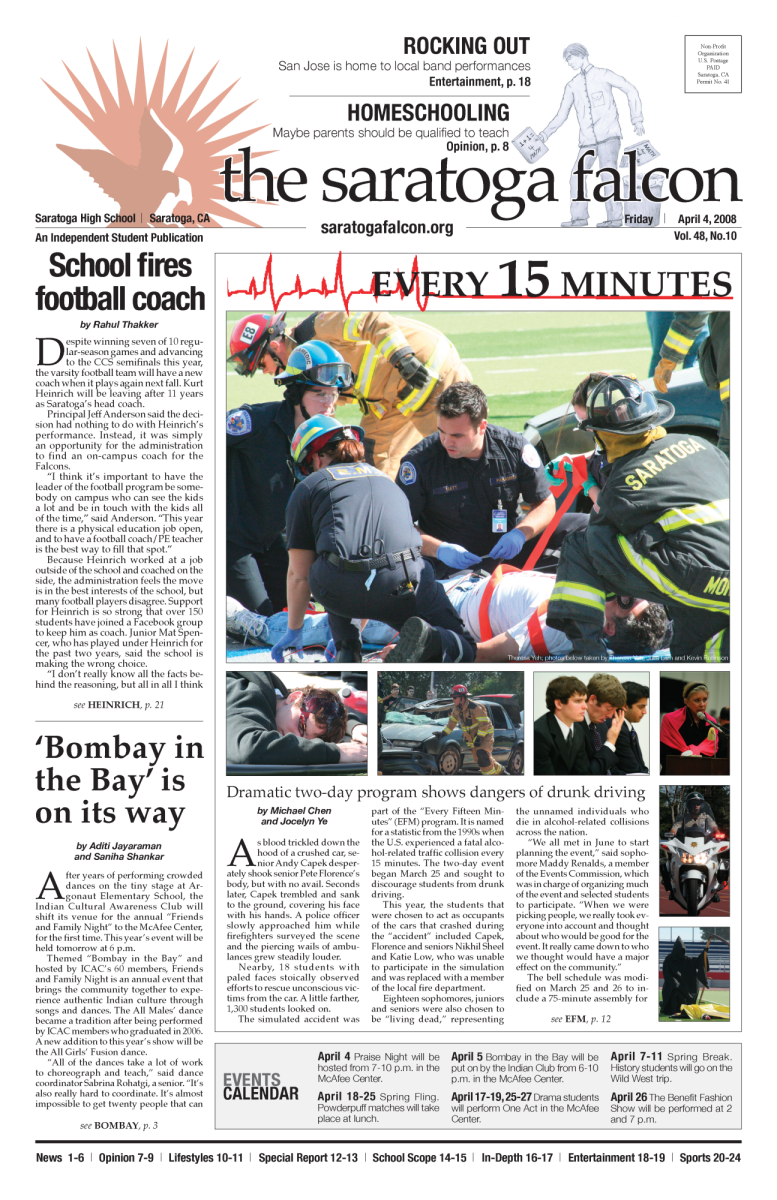In September, local temperatures reached 108 degrees, and the National Weather Service issued heat advisories. Last winter, the rainy season hit hard, drenching the fields and and sometimes making them unplayable.
With fluctuating weather conditions throughout the year, outdoor sports have to adjust by rescheduling games and finding officials, while also trying not to interfere with students’ academic schedules. When games aren’t cancelled, athletes often play in poor or uncomfortable conditions.
In September, cross country and football teams experienced record heat during practices and games. Junior cross country runner Elizabeth Kardach said that it was is very tiring to run in the heat, and the runners needed frequent water breaks to stay hydrated.
“One time, when it was 105 degrees we just ran to a pool,” Kardach said.
Athletic director Tim Lugo said that the athletic department gets advice from CCS officials on whether to play or not, but the school ultimately makes this decision. Coaches have the right to ask to reschedule games, but if the other school disagrees, the teams must play.
On Sept. 1, the Falcons played Silver Creek on a Friday night when the temperature was over 100, perhaps the hottest football game in the history of the school.
By contrast, during the winter and spring, soccer, baseball and softball sometimes face cold and wet weather. The general rule in soccer is to play unless there are large, standing puddles on the ground or lightning, both of which pose safety issues.
Soccer has the most difficulty with the weather since it is often cold and rainy in January and February. “I admire what they do out there. I think they clearly have the worst season to play in,” Lugo said.
A few years ago, a soccer playoff game couldn’t be rescheduled, so he said the teams were forced to play in “torrential downpour.” Lugo said that although there was no standing water on the field, the situation was uncomfortable for everyone.
Lugo said that weather problems were made worse with the school’s previous bell schedule when games had to be rescheduled due to rain. This particularly impacted baseball players, whose parents and teachers got frustrated because they were missing the same classes every day.
The schools are also in charge of scheduling the referees, but this is not as simple as it seems — since most sports are short on officials, there is not much flexibility for rescheduling, Lugo said.
For this reason, the school tries to let the referee association know by noon on the day of the game whether it will take place if there are any doubts, he said. However, this isn’t possible sometimes: The weather can clear up, or schools can alternatively groom fields to be playable.
Although weather makes it challenging to play games, there are also some unexpected perks. Senior soccer player Chris Auches said that sometimes playing in the rain can actually be fun.
“When you slide you go a lot further and it’s easier to score because the ball skips a lot faster on the ground,” Auches said.
The coaches also train their players to get used to these conditions.
“The soccer coaches do a really good job of warming players up behind the bench,” Lugo said. “Once your body starts to warm up internally and your muscles get loosened up, you’re going to be fine.”



























